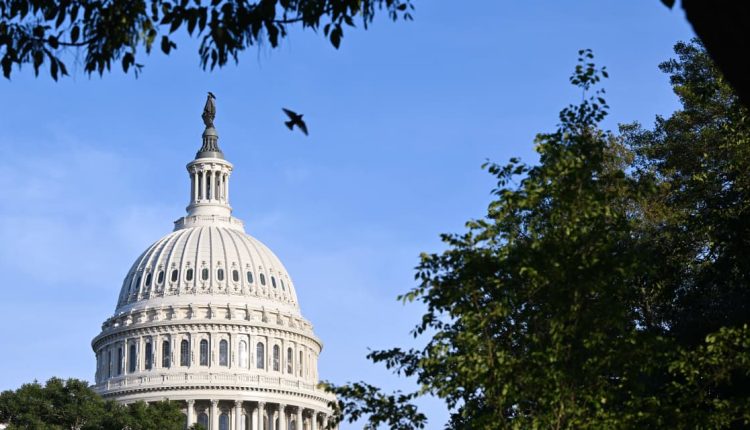Moody’s
Investors Service said Monday that a federal government shutdown would be “credit negative” for the U.S.
Congress is racing to reach an agreement to avert a shutdown on Oct. 1, but House GOP members are struggling to arrive at a consensus to fund government agencies before the fiscal year ends on Saturday, Sept. 30.
Moody’s said that while any shutdown would likely be temporary and concentrated in government-heavy areas like Washington, D.C., and have limited ramifications for the broader U.S. economy and growth, it would “underscore the weakness of U.S. institutional and governance strength relative to other Aaa-rated sovereigns.”
“The longer the shutdown persists, the more negative the potential impact on the broader economy. A prolonged shutdown would likely be disruptive both to the US economy and financial markets,” warned analysts led by William Foster, senior vice president of the Sovereign Risk Group for Moody’s Investors Service.
A shutdown would especially demonstrate how Washington’s political polarization is constraining policy-making when fiscal deficits are widening and debt affordability is deteriorating, Moody’s said.
Lael Brainard, director of the National Economic Council, said the note from Moody’s “underscores that a Republican shutdown would be reckless, create completely unnecessary risks for our economy, and lead to disruptions for communities and families across the country. Congress must do its job and keep the government open.”
Some defense contractors could feel the greatest effects of a shutdown for their exposure to the Washington, D.C., area, the report said. Organizations that rely on federal funding for revenue or debt servicing payments, municipal issuers such as mass transit systems, and certain municipal housing sector bonds that rely on annual federal funding could also be affected.
During the last government shutdown, which ended in January 2019, about 800,000 federal employees were furloughed or worked without pay, and private contracting companies suspended investment and hiring decisions, the report said. That shutdown lasted a record 34 days, according to Congress. Lower-wage workers of private contractors, including food service workers and security guards, face a permanent loss of income during shutdowns.
Washington’s local government took over basic services, including collecting trash on the National Mall and at monuments, and the Smithsonian Museums and other tourist attractions were closed.
A longer shutdown will “strain liquidity for defense services contractors and certain municipal bond issuers that rely on federal funding,” and certain government services, especially if they are considered nonessential, could be paused or slowed.
But mandatory government spending outside of the congressional appropriations process, such as Social Security, Medicare, Medicaid, and debt servicing, wouldn’t be affected.
Write to Janet H. Cho at [email protected]
Read the full article here

